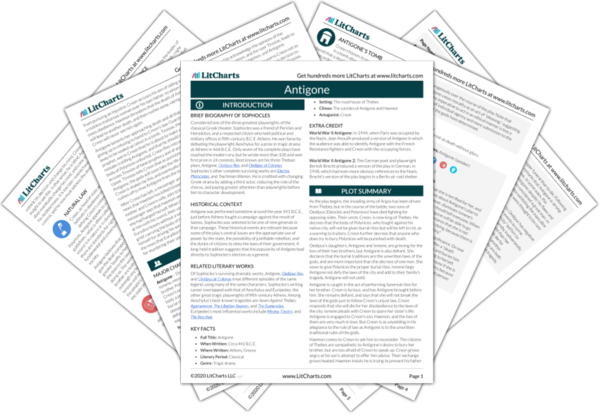Next
Summary
Antigone Study Guide |
Next
Summary
|
Welcome to the LitCharts study guide on Sophocles's Antigone. Created by the original team behind SparkNotes, LitCharts are the world's best literature guides.

World War II Antigone: In 1944, when Paris was occupied by the Nazis, Jean Anouilh produced a version of Antigone in which the audience was able to identify Antigone with the French Resistance fighters and Creon with the occupying forces.
World War II Antigone 2: The German poet and playwright Bertolt Brecht produced a version of the play in German, in 1948, which had even more obvious references to the Nazis. Brecht's version of the play begins in a Berlin air-raid shelter.